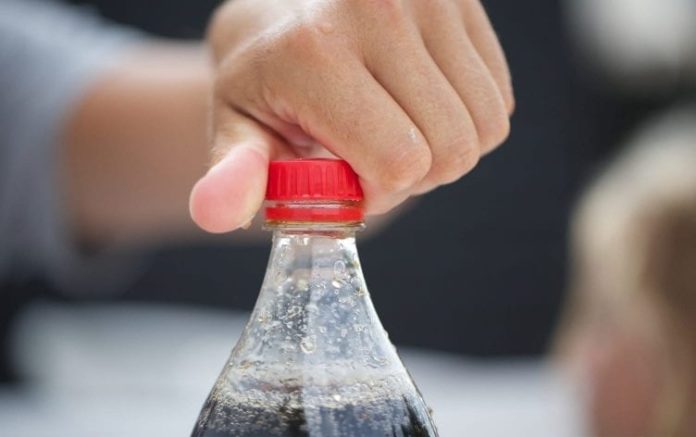
Diet soda might have zero calories but that doesn’t mean it has zero impact on your health. The artificially sweetened drinks have been linked to Type 2 diabetes and cancer. Drinking diet soda could also lead to weight gain. Those who drank low-calorie sweetened beverages consumed an additional 196 calories and 15 grams of sugar throughout the day compared to water drinkers, according to new research. “Artificial sweeteners in diet drinks are believed to increase cravings and alter the natural metabolic process, causing you to store fat,” explains Amy Gorin, RD.
Here, a look at the latest science and why cutting back on diet soda and hydrating with water instead is still your best bet.
THE SCIENCE
New research adds to the growing number of studies about the health risks of drinking diet soda. In one study, researchers tracked 81,714 post-menopausal women for more than a decade and found those who consumed more than one artificially sweetened beverage per day had an increased risk of stroke, heart attack and early death.
“We are not sure whether the adverse effects are due to the artificial sweeteners, such as aspartame or saccharin, that were used at the time the diet-drink-question was asked or [due to] other components of the diet drinks,” explains co-author Yasmin Mossavar-Rahmani, PhD, RD, associate professor at the Albert Einstein College of Medicine in New York. “For example, the caramel coloring can potentially cause inflammation that may also be driving this association.”
Research linking diet soda consumption to heart issues among post-menopausal women also found the women were more apt to be overweight and have high blood pressure or diabetes than non-diet soda drinkers. Gorin points to research suggesting sweeteners like aspartame might lead to oxidative stress of cardiac tissue, which can impair heart function.
THE BOTTOM LINE
The latest research focused on older women, but that doesn’t give other regular diet soda drinkers a free pass.“Our study adds to the mounting evidence that artificially sweetened beverages may not be good for you … It would seem prudent to decrease consumption of diet drinks,” says Mossavar-Rahmani. While the occasional diet soda is no cause to panic, staying hydrated with water is a better choice for overall health and weight loss. “Try to peg what it is about diet drinks that are most appealing to you — is it the carbonation that you crave? Or the sweetness? Or the fact that you’re drinking it from a can or a bottle? — and then find a replacement for most or all of the diet drinks you consume,” says Gorin. For example, “try seltzer with a squeeze of lemon or plain water flavored with sliced fruit and keep a water bottle you like on hand as a reminder to keep sipping.”









